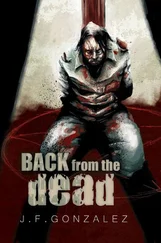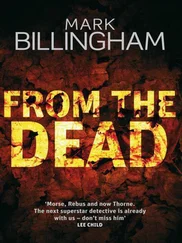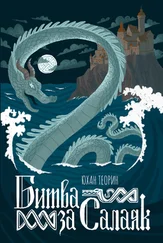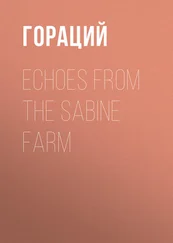“Yes... Well... Yes, I have.”
What was Julia supposed to say? She caught sight of her uneasy expression reflected in the darkness of the windowpane, and realized she didn’t really want to tell her sister anything about what had happened, about Jens’s sandal and the death at the quarry. “Everything’s fine,” she said at last.
“Have you seen Gerlof?”
“Yes... we’re at the cottage now.”
“The cottage in Stenvik?” said Lena. “Surely you’re not going to sleep there?”
“We are,” said Julia. “We’ve turned on the water and the electricity.”
“Dad mustn’t get cold,” warned Lena.
“He won’t,” said Julia, feeling ashamed, and then feeling ashamed because she felt ashamed. “We’re just sitting and chatting... What was it you wanted?”
“Well... It’s the car. Marika rang, and apparently she’s going to take some drama workshop in Dalsland next weekend, so she needs the car. I said that would be fine... I mean, you’re not staying on Öland, are you?”
“I’m staying for a while longer,” said Julia.
Marika was the daughter of Lena’s husband Richard from his first marriage. Julia had thought the relationship between Marika and Lena was pretty bad, but clearly it was good enough now for her to be lending Julia’s car to her stepdaughter.
“For how long?”
“Hard to say... A few days.”
“Yes, but how long... three days?” said Lena. “So you’ll bring the car back here on Sunday?”
“Monday,” said Julia quickly.
Whichever weekday Lena had said, she would have added another day.
“Come early, then,” said Lena.
“I’ll try,” said Julia. “Lena...”
“Great. Love to Dad. Bye, then.”
“Lena... Was it you who put the photo of Jens in the desk drawer?” Julia asked quickly.
But Lena had already hung up.
Julia turned off her phone with a sigh.
“Who was that?” said Gerlof from his armchair.
“Your other daughter,” said Julia. “She sends her love.”
“Aha,” said Gerlof. “Does she want you to come home?”
“Yes. She’s checking up on me.”
Julia sat down in the corner opposite Gerlof’s armchair. Her elderflower tea with honey was lukewarm, almost cold, but she drank it anyway.
“Is she worried about you?” said Gerlof.
“A bit,” said Julia.
Worried about her car, anyway, she thought.
“It’s safer here than in Gothenburg,” said Gerlof with a smile.
But then he seemed to remember what had happened earlier in the day over at the quarry, and his smile faded. He looked down at the floor. Julia didn’t say anything either.
The air in the cottage was slowly warming up. Night was falling outside the windows; it was almost nine o’clock. Julia wondered if there were sheets in the cottage. There ought to be.
“I’m not afraid of death,” said Gerlof suddenly. “I used to be when I was young and at sea, for many years — afraid of running aground and mines and storms — but now I’m too old... And a lot of the fear disappeared when Ella ended up in hospital. That autumn when she went blind and slowly faded away from us.”
Julia nodded without speaking. She didn’t want to think about her mother’s death either.
Jens had been able to leave the cottage and go out into the fog that September day for two reasons. One had been the fact that Gerlof wasn’t at home. And the other reason was that Jens’s grandmother Ella had gone for a lie-down and fallen asleep, in the middle of the afternoon. A chronic exhaustion had crept up on Ella that summer, draining away her usual energy. It had seemed totally inexplicable, until the following year when the doctors had established that she was suffering from diabetes.
Jens had disappeared and his grandmother had lived for only a few years after that. She had wasted away, tortured by grief and a guilty conscience at having fallen asleep that day.
“Death becomes a bit like a friend when you get old,” said Gerlof. “An acquaintance, at any rate. I just want you to know that, so you won’t think I can’t cope with this... with Ernst’s death.”
“Good,” said Julia.
But she hadn’t really had time to think about how Gerlof might be feeling.
“Life goes on,” said Gerlof, and drank his tea.
“In one way or another,” said Julia.
There was silence for a minute or so.
“Did you want me to ask you something?” said Julia eventually.
“Yes. Ask away.”
“About what?”
“Well... Would you like to know what that rounded sculpture was called, the one somebody knocked down into the quarry?” Gerlof looked at Julia. “That shapeless stone... Maybe the police officers from Borgholm asked about it? Or Lennart Henriksson?”
“No,” said Julia. She thought about it. “I don’t think they even saw it; they were looking further away, at the sculpture of the church tower and...” She stopped. “I didn’t think about that stone either. Is there something special about it?”
“Maybe,” said Gerlof. “It’s mainly the name, though.”
“So what was it called, then?”
Gerlof took a deep breath and leaned back in the armchair. He exhaled with a long drawn-out sigh.
“Ernst wasn’t really very happy with it...” said Gerlof. “It had cracked and hadn’t turned out very well, he thought. So he christened it ‘the Kant stone.’ After Nils Kant.”
Gerlof was looking at Julia as if she ought to react, but she didn’t know why.
“Nils Kant,” she said.
“Have you heard that name before?” asked Gerlof. “Did anybody mention him when you were growing up?”
“Not that I remember,” said Julia. “But I think I’ve heard the name Kant somewhere.”
Her father nodded.
“The Kant family lived here in Stenvik,” he told her. “Nils was the son, the black sheep... but when you were born, after the war, he wasn’t here anymore.”
“Right.”
“He’d gone away,” said Gerlof.
“So what did Nils Kant do that was so terrible?” asked Julia. “Did he kill somebody?”
Nils Kant is standing with his shotgun pointing at the two foreign soldiers, his finger on the trigger. The wind and the birdsong and all the other sounds on the alvar have fallen silent. The landscape has become blurred; Nils can see only the soldiers and the double barrel of the shotgun which he is keeping trained on them all the time.
The soldiers slowly get to their feet, as if obeying an order. Their legs seem to have no strength; they grab hold of the grass to help them rise, then they raise their arms in the air. But Nils does not lower his weapon.
“What are you doing here?” he asks.
The men merely stare at him, their hands above their heads, and don’t reply.
The one at the front moves back half a pace, bumps into the other one, and stops. He looks younger than the one behind him, but both their faces are covered in a mask of gray dust, smears of mud, and faint black stubble, and it’s impossible to tell how old they are. The whites of their eyes are bloodshot with fine red lines, and their eyes look a hundred years old.
“Where are you from?” asks Nils.
No reply.
When Nils quickly looks down, he can’t see any sign that the soldiers have a pack or any weapons with them. The knees of their gray-green uniforms are threadbare and the seams are frayed, and the soldier in front has a wide rip in the material above the knee.
Nils has his gun, but it doesn’t make him feel calm. He tries to breathe in and out slowly through his nose so that his arms won’t begin to shake and the gun start wobbling about all over the place. An invisible band of iron is tightening around his head just above his ears; the pain makes it impossible for him to think clearly.
Читать дальше












